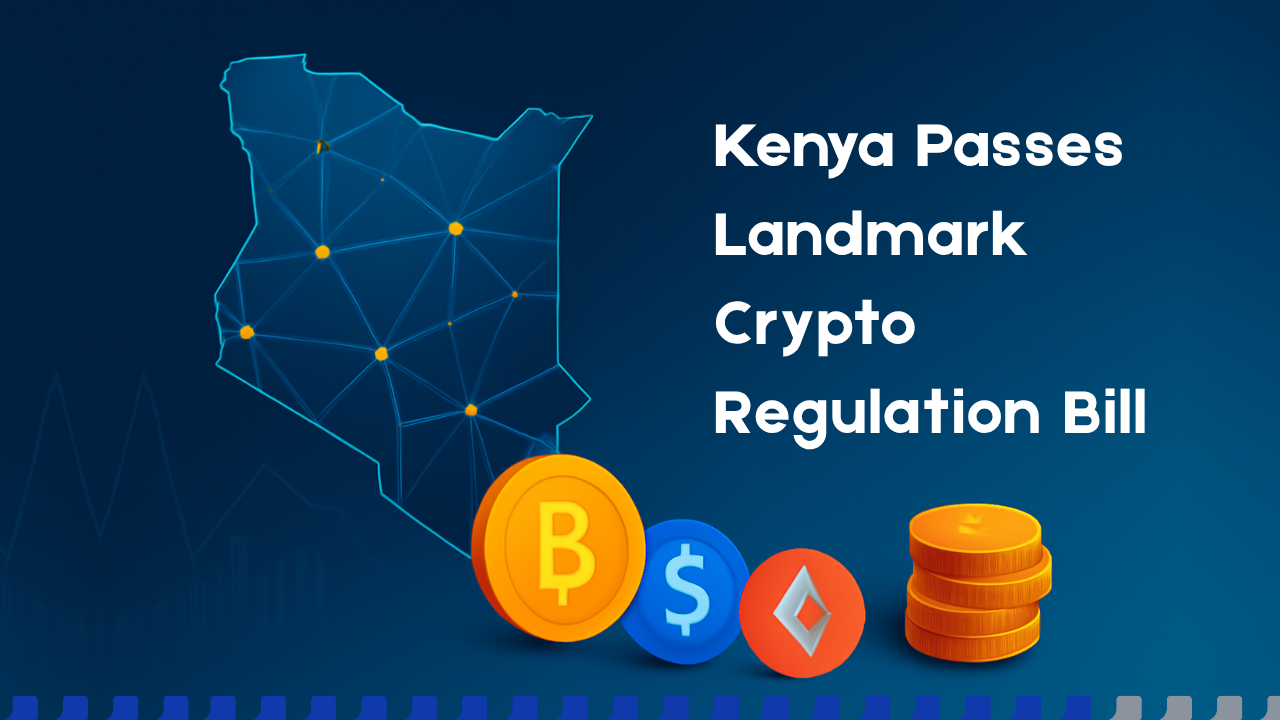On October 15, 2025, Kenya’s National Assembly approved the Virtual Asset Service Providers (VASP) Bill. This is a pioneering regulation that could position Kenya as a leader in Africa’s digital finance landscape. The bill, which now awaits President William Ruto’s assent, aims to create a framework for stablecoins, crypto exchanges, and digital asset platforms, introducing formal oversight of the rapidly growing industry.
The VASP Bill introduces a dual regulatory structure with oversight divided between the Central Bank of Kenya (CBK) and the Capital Markets Authority (CMA). The CBK will manage stablecoin issuances and digital assets resembling money, while the CMA will oversee exchanges and trading platforms. This clear division is designed to reflect global best practices, addressing the distinct risks associated with different cryptocurrency products.

According to Finance Committee Chair Kuria Kimani, the regulation will promote Kenya’s emerging crypto sector. It will also ensure consumer protection and market integrity. Kimani emphasized the bill’s importance in securing Kenya’s position as a fintech hub in East Africa. Building on the country’s reputation for mobile money innovation with services like M-Pesa.
Why It Matters:
The bill’s passage is expected to foster a safer environment for investors and consumers by establishing clear guidelines for crypto operations. This will include Know Your Customer (KYC) and Anti-Money Laundering (AML) requirements, token listing disclosures, and consumer protection measures. The regulatory framework aims to attract international exchanges. This will create new investment opportunities and help local fintechs connect blockchain-based solutions with mobile money infrastructure.
In particular, the bill addresses the growing concerns around stablecoins—digital currencies pegged to traditional assets like the U.S. dollar. While they have gained popularity, concerns over currency substitution in emerging markets have prompted many governments to move cautiously. By regulating stablecoins under the CBK’s oversight, Kenya aims to balance innovation with financial stability. This is to ensure these assets don’t undermine the country’s monetary sovereignty.
Market Expectations:
Once the bill is signed into law, the next steps will include setting up a licensing regime and compliance protocols for crypto firms. These will include specific operational standards related to cybersecurity, market surveillance, and consumer protection. Market participants can expect a structured approach to compliance, with an emphasis on transparency, including disclosures on reserves, custody practices, and potential conflicts of interest.
The Kenyan government has signaled that these regulatory measures are intended to protect local and international investors while stimulating growth in the fintech and blockchain industries. Kimani pointed out that young Kenyans aged 18-35 are already actively using digital assets for trading and payments. They will benefit from a formalized and lawful path for these transactions, potentially reducing fraud and increasing tax visibility.
A Step Towards Innovation with Caution:
The VASP Bill reflects a careful approach to regulating the crypto market. This ensures that while innovation flourishes within a framework that mitigates risk and protects consumers. The bill follows in the footsteps of other leading crypto-regulated markets such as South Africa. It signals a shift in Africa toward clearer, regulated crypto ecosystems.
As Kenya awaits the final presidential assent, industry experts and stakeholders are watching closely. Early movers, especially global crypto exchanges and custodians, may soon look to Kenya as a launchpad for their East African operations.
What’s Next:
Once the bill is signed into law, Kenya will enter the rule-making phase. Both the CBK and CMA are setting up procedures for licensing and compliance. This will include transitional guidance and phased implementation of key regulations. The crypto industry in Kenya now has a roadmap to follow, making it easier for businesses to operate and comply with national standards.
